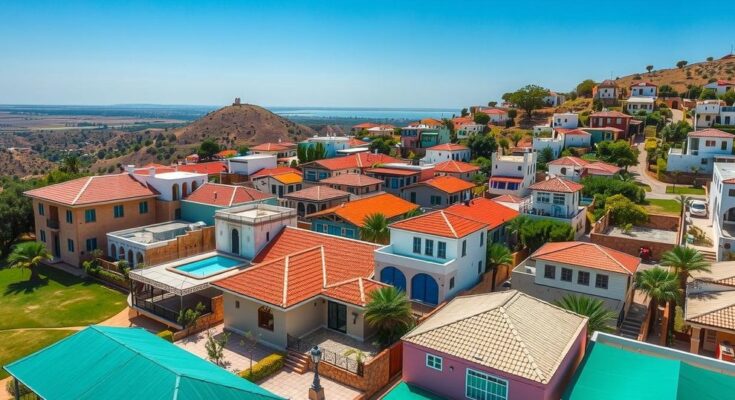President Kais Saied has initiated a comprehensive inventory of state properties to address unauthorized constructions and land grabs in Tunisia. He emphasized the need for accountability amongst those who violate property laws, while also proposing new legislation to encourage communal entrepreneurship and manage state lands more effectively. Historical oversights in land surveys and ownership transfers were highlighted, indicating the necessity for reform and transparency.
In a significant directive, President Kais Saied ordered a thorough inventory of all state properties pertaining to the Tunisian populace during a meeting with Minister of State Property and Land Affairs, Wajdi Hedhili. This decision highlights concerns over improper appropriations of state-owned properties, particularly luxurious palaces constructed without adequate authorization in various regions, including Bizerte and Ariana.
Furthermore, the President criticized individuals who, despite illegally seizing state properties, frequently proclaim their commitment to the rule of law through media platforms or by presenting themselves as victims. This hypocrisy underscores the need for legal scrutiny and accountability regarding public property.
Additionally, President Saied discussed legislation prioritizing the allocation of state lands for communal entrepreneurs, aimed at fostering wealth creation and providing job opportunities for the unemployed. Another proposal involves selling lands designated for construction to the “Société Nationale Immobilière de Tunisie” (SNIT) and the “Société de promotion des logements sociaux” (SPROLS) for a nominal price, reflecting the government’s social policy objectives.
The President recalled a nationwide land survey project initiated in the 1970s, which was inexplicably halted despite having funding allocated, suggesting a cover-up for numerous violations involving agricultural lands. He asserted that many land grabs disguised as legal transfers have occurred, transitioning many properties from public to private ownership, initially at negligible costs.
In conclusion, President Kais Saied’s initiative for a comprehensive inventory of state properties represents a crucial step toward accountability and transparency concerning public assets in Tunisia. His advocacy for legislation to empower communal entrepreneurs and facilitate access to land reflects a commitment to addressing unemployment and economic disparity. The acknowledgment of historical violations in land ownership further underscores the need for reform and vigilant oversight to reinstate the rule of law in property management.
Original Source: www.zawya.com




